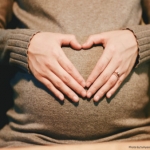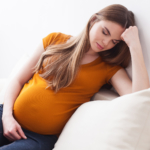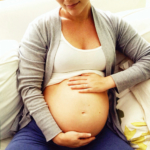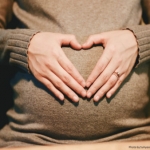Most studies have shown that women experience an improvement or remission in eating disorders during pregnancy; however, studies assessing how eating disorders may affect pregnancy outcomes have yielded conflicting results. While some studies have demonstrated no negative effects, others have demonstrated higher miscarriage rates among women with bulimia nervosa. In addition, women with histories of eating disorders have been shown to be significantly more likely to experience preterm delivery and to give birth to babies small for gestational age.
A recent study published in BJOG is one of the largest to date to assess outcomes in women with eating disorders. In this study, women were enrolled prenatally as part of Generation R, a prospective population cohort study based in the Netherlands which was designed to identify early life risk factors for health and determinants of prenatal and postnatal growth. Women with a history of eating disorder were identified using data from a pregnancy questionnaire completed by the women at 20 weeks of gestation. Women were asked whether they had suffered (ever and in the previous year) from a list of psychiatric disorders.
112 women (2.1%) reported having ever suffered from anorexia nervosa (AN), and 17 (0.3%) in the last year; 160 (3.0%) reported having ever suffered from bulimia nervosa (BN) and 49 (0.9%) in the last year; 93 (1.8%) reported having suffered from both (AN + BN) ever and seven (0.1%) in the last year.
Because there were such low rates of eating disorders identified during the past year, the researchers used lifetime exposure for their analysis. Outcomes in four groups of exposed women were analyzed: lifetime AN (n = 129), lifetime BN (n = 209), lifetime AN + BN (n = 100), other lifetime psychiatric disorder (n = 1002). Outcomes were compared to unexposed women (n = 3816).
In general, pregnancy outcomes were positive. No differences were found in mean birthweight, prevalence of a small-for-gestational-age, or premature birth. Women with AN were more likely to have fetal distress. Relative to unexposed women, women with AN had, on average, a lower body weight but a higher rate of weight gain subsequently. Women with BN had a higher body weight but a lower rate of weight gain.
This is the largest prospective study to date to assess pregnancy outcomes in women with eating disorders. It suggests that women with histories of eating disorders generally do well during pregnancy with outcomes similar to women with no eating disorder. This is consistent with our clinical experience here at the CWMH: women with eating disorders, when they are pregnant, are more able to refrain from eating patterns which might put their pregnancy at risk.
The strengths of this study are its size and its prospective design; however, some questions remain. Given the stigma associated with eating disorders and the use of a self-reported questionnaire in this study, it is possible that the prevalence of eating disorders might have been underestimated. In fact, other studies have demonstrated higher rates of eating disorders (particularly bulimia nervosa) during pregnancy. Therefore does this study provide an accurate assessment of risk given that certain women with eating disorders may not have been identified?
In addition, we cannot really evaluate the risks associated with active eating disorder during pregnancy, as the number of women who endorsed symptoms during the past year was so small. Few studies have measured the impact of active symptoms on pregnancy outcomes; however, all of them have shown worse outcomes in women with active eating disorders:
- Morgan et al (2006): Women with active bulimia nervosa had a 3.3-fold increased risk of preterm delivery.
- Koubaa et al (2005): Women with current eating disorders were at increased risk of hyperemesis and delivered infants with significantly lower birth weight and smaller head circumference.
- Franko et al (2001): Women with active AN or BN had a higher risk of Caesarean section.
Overall the data are reassuring; however, we cannot assume that all women with eating disorders will do well during pregnancy. While larger population-based studies suggest that women with histories of eating disorders will do well, smaller studies (often with clinically derived samples and thus probably including women with more severe or active illness) suggest that some women may have worse pregnancy outcomes.
A previous review on this topic provides useful guidelines for the management of pregnant women with eating disorders:
- Treat the eating disorder before pregnancy
- Alert the obstetrician or midwife to the presence of an eating disorder
- Educate women about nutrition and growth of the fetus
- Refer the woman to an eating disorder service as early in pregnancy as possible if she has an active eating disorder
- Monitor closely for the recurrence or deterioration of an eating disorder during pregnancy and the postpartum period
Ruta Nonacs, MD PhD
Micali N, De Stavola B, dos-Santos-Silva I, Steenweg-de Graaff J, Jansen P, Jaddoe V, Hofman A, Verhulst F, Steegers E, Tiemeier H. Perinatal outcomes and gestational weight gain in women with eating disorders: a population-based cohort study. BJOG 2012.








I wrote a research paper on this topic in graduate school, about 7 years ago. What I discovered from the studies I read was that in large scale studies, the women seemed to do better during pregnancy. In case studies, however, they actually tended to do worse (justifying vomiting because other women had morning sickness, not reporting ED behaviors to doctors, spouses, etc.). Has this been your experience in the clinic?